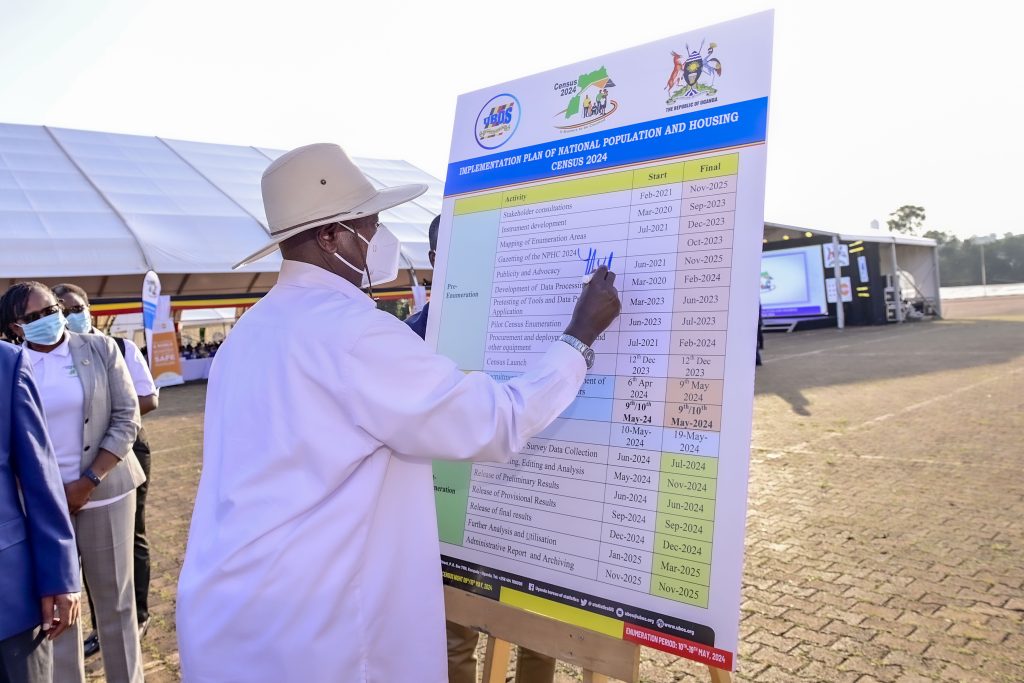
Ugandans are gearing up for the long-awaited National population census, with preparations underway for the enumeration exercise scheduled to begin on Friday, May 10. The Uganda Bureau of Statistics (Ubos) has designated May 10 2024 as a public holiday to ensure that citizens, guests, and refugees are at their places of residence, where enumerators will find them.
During the census, which will be conducted on Census Night, May 9, enumerators will visit homes, lodges, hotels, or apartments where individuals would have spent the night. Only those who were in Uganda on or before May 9 will be counted. For individuals in transit or homeless, their place of abode will be determined by where they spent Census Night.
The census will involve answering up to 178 questions, covering biographical, economic, and social information. Households will provide details on economic activities, income, savings, land ownership, and access to government poverty alleviation programs like the Parish Development Model and Emyooga. Education levels, literacy rates, and school attendance of household members will also be recorded.
Enumerators will also gather data on technology access, such as the number of mobile phones and computers in a household, as well as internet access. This information will help determine mobile phone and internet penetration in the country.
Additionally, the census will provide insights into the accessibility and quality of social services, transportation means to these facilities, and the quality of services offered.
The census will also include questions about life and death, with enumerators collecting data on births and deaths that occurred in the year leading up to May 9. However, babies born on May 10 and onwards, even if within the census period, will not be counted.
Questions related to fertility rates, life expectancy, maternal mortality, and causes of death will also be asked. Data on children will include vaccination records, age, and the status of their parents.
The information gathered during the census will be crucial for government planning and policy formulation, providing essential insights into various aspects of Ugandan society, including demographics, health, education, and technology access.
In the digital era, the census process in Uganda has been streamlined to ensure efficiency and accuracy. Enumerators equipped with tablets will capture data directly, ensuring a more efficient process. Once data is captured, it is sent to supervisors for validation to ensure every household is accurately represented. After validation, the data is transmitted to the data center in Kampala, where it is processed using computers.
The data processing stage involves validation and processing by a dedicated team at the data center. This digitized system allows for quicker processing and analysis of data. Preliminary results are expected to be released by the end of June, with provisional results following in September. The final results are scheduled to be published in December 2024.
Previously, the census process relied on a manual system where paper questionnaires were printed out and given to enumerators. Enumerators would then manually fill out the questionnaires, which were in the form of booklets. These completed booklets were sent to the data center in Kampala, where the data would be transferred to computers for processing and validation.
The transition to a digital system has significantly improved the efficiency and accuracy of the census process, allowing for quicker data processing and analysis. This will ensure that the final results accurately reflect the demographic, economic, and social landscape of Uganda.

















